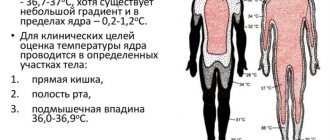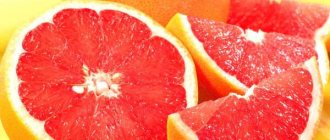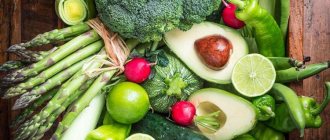Constipation is a malfunction of the intestines caused by disruption of the digestive process or other factors. The problem is manifested by the inability to empty the intestines, discomfort during bowel movements, as well as changes in the density of the stool. With this disorder, the volume of stool decreases and the consistency of stool changes.
It is recommended to eat foods that increase intestinal motility (activity), such as cereal, and also eat a balanced diet. Knowing the properties of certain products, you can independently compose and adjust your daily diet in order to restore normal intestinal function.
Natural laxative products
To get rid of discomfort, maintain normal bowel function, and eliminate constipation, adhere to certain nutritional principles:
- Eat often, in small portions. You need to eat 5-6 times a day, so the food will be easier to digest and assimilate.
- Eat foods rich in fiber. Dietary fiber activates receptors on the intestinal walls and enhances peristalsis. This improves the movement of feces and facilitates the process of defecation.
- Maintain drinking regime. Drink at least 2 liters of clean water per day. Water softens stool and makes it easier to pass.
Avoid foods that can cause constipation: those with preservatives, dyes, food additives, as well as processed foods and fast food. Prepare food from natural ingredients.
The effect of drugs and products with a laxative effect is to thin the stool, form bulky stools, increase intestinal activity, and moisturize the lower intestines to facilitate the process of bowel movement.
One of the main components of normal digestion is dietary fiber. Coarse plant fibers are not digested in the gastrointestinal tract. In the intestines they act as a brush, clearing it of contents. Soluble fibers adsorb liquid, form a mucous gel, soften stool, and restore normal motility and microflora.
In addition to fiber, organic acids have a pronounced laxative effect. They actively affect intestinal motility, improving its functioning.
Human quality of life and bowel function
The quality of human life consists of many different factors. These include bowel function. Many people do not consider constipation a serious problem, since they are not accompanied by severe pain or other obvious health problems. Therefore, patients rarely turn to a doctor with such a problem.
However, with frequent constipation, intoxication of the body gradually develops, which leads to problems with the skin, immunity, mood and performance. In addition, the risk of cracks and hemorrhoids increases, and the intestinal walls stretch over time, the problem grows like a snowball. That is why, if you often experience constipation, be sure to consult a doctor. He will give the right recommendations and tell you how not to harm your health.
The modern pharmaceutical market offers many drugs that help with constipation. But in the initial stages, it is enough to pay attention to products with a laxative effect and review the diet. This helps to quickly and effectively normalize intestinal function. What foods make you weak?
Oatmeal with Strawberries: Pixabay
Foods that make you weak
Flax seeds
Flaxseed is rich in soluble and insoluble dietary fiber. Soluble fiber helps form bulky stool, while insoluble fiber helps move it through the intestines. Seeds can be added to soups, main courses, and desserts.
Sauerkraut
Contains a large amount of fiber and probiotics. Sauerkraut is a natural source of probiotic substances that normalize intestinal microflora and help cope with chronic constipation. The product works quite quickly and has a long lasting effect. Try to eat naturally fermented cabbage, that is, without adding vinegar.
Vegetable oil
Gently affects the intestinal walls, as if lining them. This promotes softening and easy passage of stool. In addition, olive and unrefined sunflower oil increases the contractility of the small intestine, which also facilitates bowel movements.
Vegetables
Laxative foods include leafy green vegetables, including spinach, broccoli, and Brussels sprouts. Almost all vegetables are rich in fiber that is beneficial for digestion. To effectively combat constipation, you should consume them raw. Products with a laxative effect include:
- Beet. This root vegetable is high in sugar and helps loosen stool.
- Pumpkin. Contains a lot of potassium and fiber. Helps maintain normal water balance in the body.
- Carrot. Contains water-attracting sugar, as well as organic acids and dietary fiber.
Other vegetables that provide a laxative effect include zucchini. Their advantage is that they are 95% water and contain a minimal amount of fat. Zucchini normalizes the balance of microflora and stimulates the gastrointestinal tract.
Among vegetables, the above-mentioned beets have a pronounced laxative effect. The root vegetable can be eaten both raw and boiled.
The properties of beets do not change after heat treatment, so it is recommended to prepare a variety of salads from it. To normalize stool, drinking beetroot juice is very useful. It affects intestinal receptors, activating the gastrointestinal tract.
Fruits and berries
Other products of plant origin also have a pronounced laxative effect:
- Apples. The pectin contained in the peel has a beneficial effect on the intestinal walls and improves microbiological parameters.
- Kiwi. The fruits help normalize stool and promote regular bowel cleansing.
- Pears. The pulp contains a large amount of healthy sugars, and the peel contains fiber.
- Apricots (dried apricots) and strawberries. Contains acids that help soften stool.
- Avocado. The fruits contain plant fiber, organic acids and potassium.
Another proven remedy in the fight against constipation is plums. They contain both pectin and plant fibers. Plums help accumulate water in the intestines and soften stool.
Dairy products
For constipation, you should pay attention to kefir, fermented baked milk, yogurt, and natural yogurt without additives. Fermented milk products are rich in vitamins, minerals, as well as lactic acids and beneficial bacteria. Regular consumption of fresh fermented milk products is an excellent prevention of problems with bowel movements.
Seaweed
The high content of iodine and beneficial acids makes algae an indispensable remedy for cleansing the intestines. Sea kale normalizes digestion, promotes timely bowel movements, and helps form feces of optimal consistency.
Get rid of intestinal problems
The natural British drug is not addictive and works immediately
Find Fitomucil with benefits
Laxative fruits, dried fruits and berries
The list of the best laxative foods includes the following fruits and berries:
- pears;
- apples;
- kiwi;
- grapefruit;
- mandarin;
- orange;
- peaches;
- apricots;
- plums;
- avocado;
- quince;
- strawberry;
- blueberry;
- blackberry;
- Red Ribes;
- watermelon.
The above products stimulate the production of gastric juice and have a choleretic effect, thereby improving peristalsis.
Fruits such as pears and apples are especially useful for constipation. But to have a laxative effect, you need to know in what form it is best to use them. Pears should only be eaten when ripe. Ripe fruits contain sorbitol, which has a pronounced laxative effect.
Apples are healthier for constipation when baked. Raw fruits, especially in large quantities, often lead to bloating.
Including laxative fruits in your daily diet will help completely solve the problem of constipation, if bowel dysfunction is not caused by serious intestinal pathologies.
Berries and citrus fruits should not be consumed if you have gastritis, peptic ulcers, or gastroduodenitis, as they can harm the stomach due to the large amount of acids they contain.
Prunes, dried apricots, dates, figs, raisins are dried fruits with a good laxative effect that improves digestion.
To normalize stool in the morning, it is especially useful to eat oatmeal with the addition of dried fruits or berries.
How to eat when constipated
To reduce the risk of constipation and maintain normal gastrointestinal function, you need to follow a diet. A diet for constipation involves avoiding foods that interfere with bowel movements. These include:+
- fatty meat, homemade cottage cheese and sour cream;
- white rice, bananas, potatoes;
- eggs, hard cheeses;
- black tea, cocoa, alcoholic drinks;
- products made from premium flour;
- hot sauces, mustard, pepper.
It is also better not to eat foods that contain a lot of tannins, for example, persimmons, blueberries, red wine, bird cherry, and strong tea.
A diet for constipation should be aimed at enhancing intestinal motility, eliminating fermentation, and restoring the balance of microbiotic components and bile acids. What foods can you eat for constipation?
- rye bread with bran;
- oatmeal and buckwheat porridge;
- vegetarian soups;
- lean beef, veal, turkey;
- fish and seafood;
- vegetable stews and casseroles;
- butter, marmalade, marshmallow;
- apples, fresh fruit smoothies.
Watermelons, melons, apricots, mineral water, kvass, white wine, radishes, turnips, and radishes have a laxative effect.
In addition, dietary nutrition must be prepared taking into account the characteristics of the body. For example, if constipation is associated with chronic diseases of the stomach and intestines, then the diet should be selected only taking into account the recommendations of a gastroenterologist or therapist.
Sample menu for constipation
If problems with bowel movements are associated with poor nutrition and a sedentary lifestyle, then proper nutrition will help correct the condition. As a rule, in such cases, experts recommend dietary table No. 3.
The diet includes the consumption of the following products:
- salads from fresh cabbage, beets and other vegetables;
- rosehip decoction, compotes of berries and dried fruits;
- low-fat cottage cheese and sour cream;
- vegetable oils;
- vegetable soups, lean broths;
- turkey, chicken, rabbit, beef;
- fermented milk products such as fermented baked milk and yogurt.
Drink a glass of clean water 20–30 minutes before each meal. You can replace water with freshly squeezed juice, rosehip decoction, compote of berries and fruits, including prunes. If desired, you can add a teaspoon of natural honey to your drink.
Such a diet should improve the process of bowel movement. The stool should become regular and have a uniform and soft consistency.
What and how can we help you?
- Consult with a competent specialist - our gastroenterologist will examine you in detail, if necessary, prescribe additional consultations with related specialists and monitor the treatment process, from the first visit to the result.
- To identify the cause of constipation - we have all the necessary expert-class equipment and highly qualified diagnostic specialists to conduct a detailed examination - tests, ultrasound, endoscopic examinations.
- Save you time and money - to find out why your intestines are refusing to work regularly, we have created a free conversation with a gastroenterologist to schedule an examination. If you are concerned about your symptoms, but you don’t know where to start, during the conversation you will be prescribed the necessary range of tests.
Constipation is the cause and consequence of many diseases. A competent doctor will help you understand them. You shouldn’t prescribe laxatives to yourself, get carried away with enemas, or delay visiting a gastroenterologist. You may miss something important and waste valuable time. Don't take risks - contact a specialist.
Laxative dishes
Foods that have an effective laxative effect include fruit and vegetable salads. To prepare them, you can use any approved products. Let's look at several recipes for every day as part of dietary table No. 3.
Beet and prune salad
Grate raw beets on a fine grater. Pour boiling water over the prunes and leave for 10–15 minutes. Rinse the prunes with water and chop with a knife. Mix the ingredients and add some pine or walnuts. Season the salad with olive oil. You can also add half a grated apple to the salad.
Oatmeal with kefir
Pour two tablespoons of oatmeal with kefir. Soak prunes in boiling water for 10 minutes, rinse and add to oatmeal. Grind 1 teaspoon of flaxseed in a coffee grinder and add to the porridge. Let the dish sit for 15–20 minutes. You can prepare the oatmeal the night before and let it sit in the refrigerator overnight.
Baked apples with bran
Cut the apples into 2 parts, remove the core. Mix kefir or yogurt without additives with pre-chopped bran, walnuts and dates. Pour the dressing into the cavity of the fruit. Bake in the oven for about 20 minutes at 180 degrees.
Eating foods with a laxative effect cannot always meet the body's need for dietary fiber, which is necessary for good peristalsis. For additional support, it is best to take special medications and nutritional supplements. For example, effective and safe pharmaceutical products of herbal origin include the English remedy “Fitomucil Norm”. The composition of the drug includes natural plant components - the shell of plantain seeds and the pulp of homemade plum. Soluble fiber absorbs water, turns into a gel and facilitates easy removal of stool. Insoluble fiber stimulates intestinal activity and also promotes cleansing. The product acts gently and physiologically, does not cause bloating, spasms or pain.
Components that make stool easier
Products with a laxative effect work due to the content of certain components in them. By adding them to your diet, you can establish regular bowel movements. Below we will consider which food components stimulate intestinal function.
Cellulose
Fiber is almost not digested, but it loosens feces, increasing the volume of intestinal contents, and mechanically stimulates peristalsis. Insoluble fiber is a probiotic. They promote the nutrition and proliferation of beneficial bacteria. Therefore, laxatives include all foods with a large amount of coarse fiber: vegetables and fruits, mainly raw, boiled and baked. Record holders for fiber content among vegetables are cabbage, radishes, greens, cucumbers, beets, pumpkin, zucchini, onions, and apples, plums, and bananas are especially useful among fruits.
Fiber is also found in pearl barley, buckwheat and oatmeal, bulgur, and dried fruits. There are also some types of meat dishes that are more difficult to digest and can stimulate the intestines, such as meat with skin and connective tissue fibers.
Sugary substances
Laxative products include those rich in sugary substances: sugar, honey, jam, ice cream, whole milk, sweetened fruit juices, etc. Sugary substances contain carbohydrates, which attract a lot of fluid into the intestines. Also, substances undergo fermentation processes, which increases the attraction of water into the intestinal lumen. Products containing sugary substances should be consumed in limited quantities.
Organic acids
Such acids are found in fermented milk products, in particular in kefir, yogurt, koumiss, as well as in fruit drinks and sour juices - rhubarb, tomato. They increase the secretion of fluid into the intestinal lumen, moisturize feces, and stimulate motility.
It is important to remember that consuming foods with organic acids is not recommended for gastritis, accompanied by high acidity, as well as for peptic ulcers of the stomach and duodenum.
Salt
Salty foods attract water to the intestines, helping to thin the stool. Such products include hydrocarbonate-sulfate mineral water, herring, fish caviar, corned beef, cheeses in brine, lard, etc. It is necessary to limit the use of such products in case of edema, kidney diseases and cardiovascular diseases.
Fat
Fat promotes easy movement of stool and simplifies the process of bowel movement. Butter, sour cream with a fat content of more than 30%, various types of vegetable oils (olive, rapeseed, sesame, flaxseed, sunflower, etc.), fish oil, lard, mayonnaise, cream, cheese and other fatty sauces - all these are products that have a laxative effect . But it’s important to remember that you shouldn’t get carried away with them either. Preference should be given to vegetable fats, and do not forget to include fatty fish in your diet.
Cold dishes
Stimulation of temperature receptors in the oral cavity leads to a reflex contraction of the muscles of the digestive system, and therefore to increased peristalsis. Ice cream, cold soups (okroshka, beetroot soup), as well as cold drinks help fight constipation.
You can consume the latter immediately after waking up to trigger the necessary bowel movement reaction. A good option is mineral water, which gives several positive effects at once.
Carbonic acid (carbon dioxide)
There are drinks rich in carbon dioxide, which breaks down into water and carbon dioxide, which stimulates intestinal motility by activating receptors by bubbles and increasing the volume of intestinal contents. Plain carbonated and sparkling mineral water are effective in combating constipation.
Effect of legumes on digestion
Legume products that help improve bowel function include:
- lentils;
- peas;
- beans;
- chickpeas
They contain, like vegetables and fruits, soluble and insoluble fiber, which has a laxative effect.
In case of exacerbation of gastritis and gastric ulcer, legumes are completely excluded from the list of consumed foods. At the same time, they have anti-inflammatory properties and can be useful in some gastrointestinal pathologies, for example, Crohn's disease.











